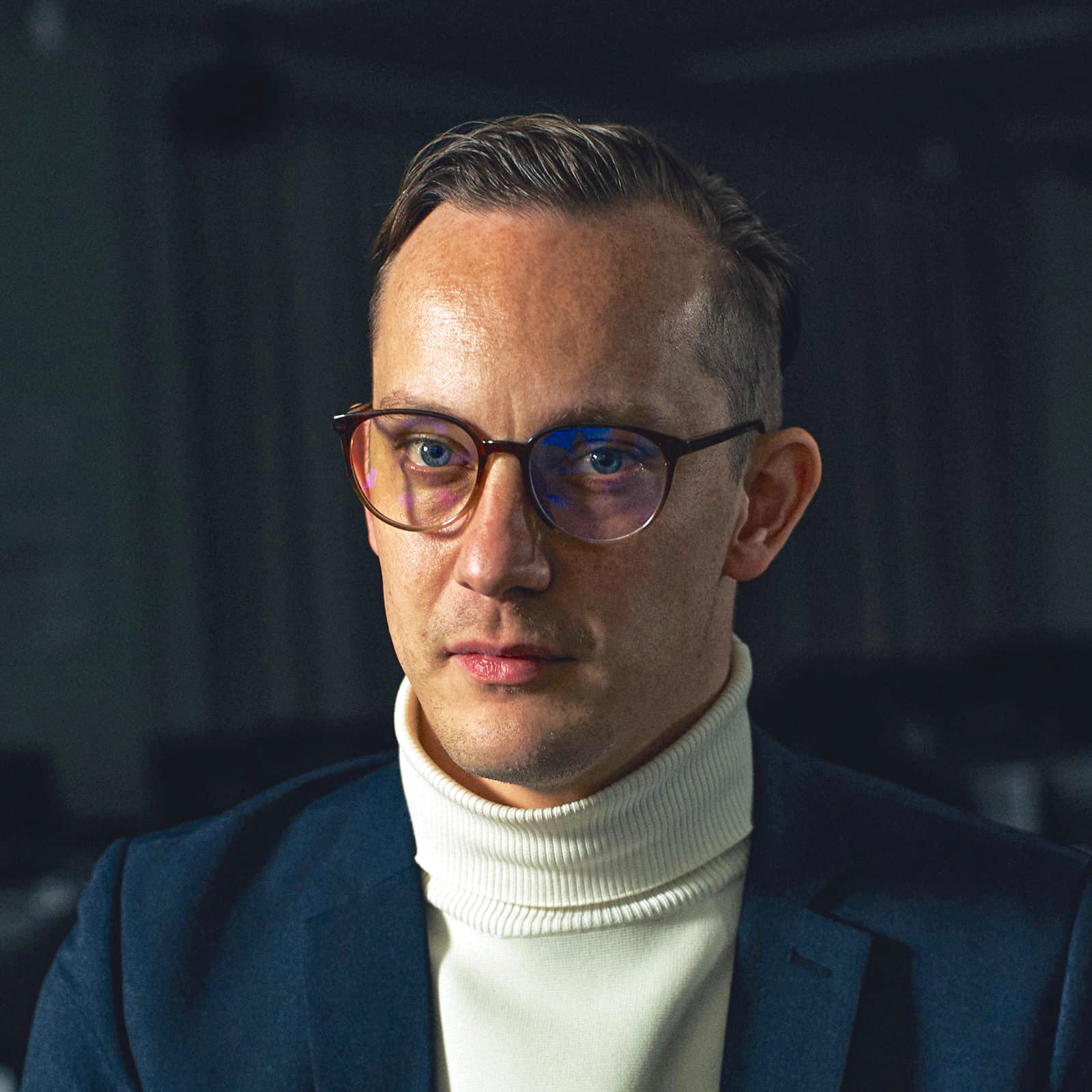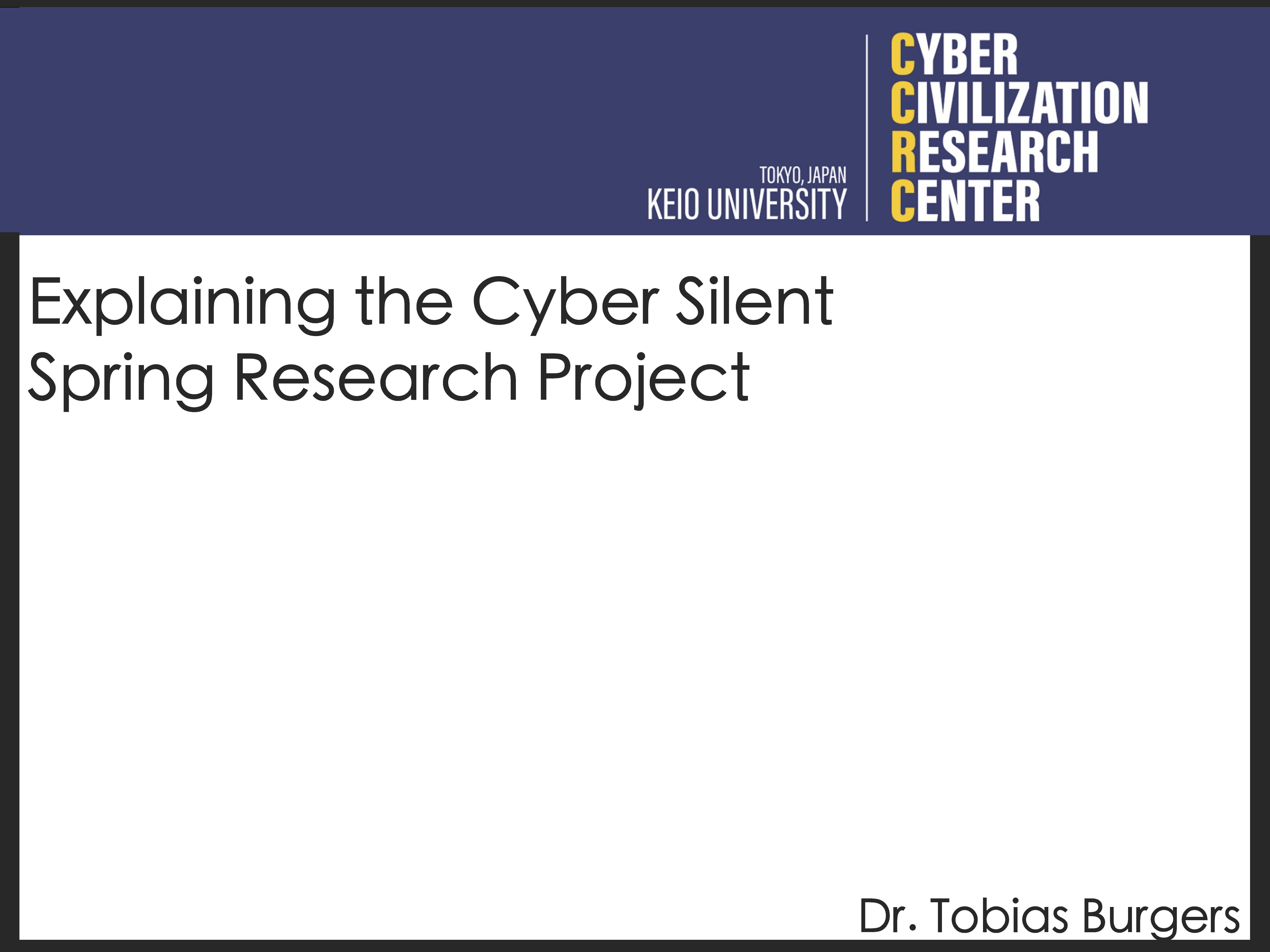Tobias Burgers
Self-introduction message
 I am a project assistant professor at the Cyber Civilization Research Center, where I am researching a wide array of topics regarding the (further) integration of cyber technologies into our societies.
I am a project assistant professor at the Cyber Civilization Research Center, where I am researching a wide array of topics regarding the (further) integration of cyber technologies into our societies.
Under the guidance of, and in collaboration with Prof. David Farber, the focus has been mostly on research topics in the security realm. In particular, I am interested in understanding how new(er) technologies change the dynamics of conflict and subsequently, the relationship between conflict, politics, and society. In this, there seems to be a growing distance between conflict (and war), and societies.
This raises several essential questions about the purpose of and impact of conflict, security, and how societies in a detached world in which conflict and war are often limitedly visible, politically engage in conflict, and quest for security.
Beyond this, I am increasingly interested in understanding how new technologies are changing the relationship between states and citizens in East Asia - within particular, the high-tech governance model of China of interest.

Background and career
I started my initial studies at the University of Amsterdam, where I studied political science for my initial year. At the end of that year, I decided to conduct further studies in politics in Berlin (Otto Suhr Institute (OSI), Free University of Berlin), and Leipzig (Leipzig University). I gained my diploma - the equivalent of a bachelor and research master - with honors at the Otto Suhr Institute, Free University Berlin.
Subsequently, I worked for the Berlin NGO Berghof Peace Support, assisting their work in conflict research and resolution.Following this, I worked for another Berlin NGO: Crisis Simulation In Peace (CRISP), developing simulation and scenarios for their fieldwork. While at CRISP, I started my doctoral studies at the OSI, FU Berlin, focusing on the integration of new military technologies into United Nations peacekeeping operations in 2014.
The dissertation sought to understand how these revolutions in military affairs could change and shape the military element of UN peace operations and if such could potentially have a positive or negative impact on the military as well as the overall efficacy of UN peace operations.
In the final years of my dissertation, while awaiting my review and defense, I was a visiting fellow at the Center for Security Studies, National Chengchi University, Taipei, Taiwan. Here, with the kind support of the Taiwan Fellowship, I researched how robotic and cyber technologies could pose new threats to Taiwan and how it influences the island's security dynamics.
Finally, and before my current position, I became a visiting fellow at KGRI, with the gracious support of the Canon Foundation. During this period, 2018-2019, I conducted a similar research project as in Taiwan; however, this time focusing on how Japan could, and should, react to arising cyber and robotic threats.
Research achievements
I have published book chapters, academic articles, news commentaries, and regular columns on a diverse set of media.
For more information on my publications, kindly see my Google Scholar, available at https://scholar.google.com/citations?user=hqUoJbEAAAAJ&hl=en or just kindly email me at *burgers at keio dot jp*. New research updates regarding the Cyber Silent Spring project, the other prior mentioned project, as well as other papers, will be uploaded to my Google Scholar account.
2022年3月31日付





